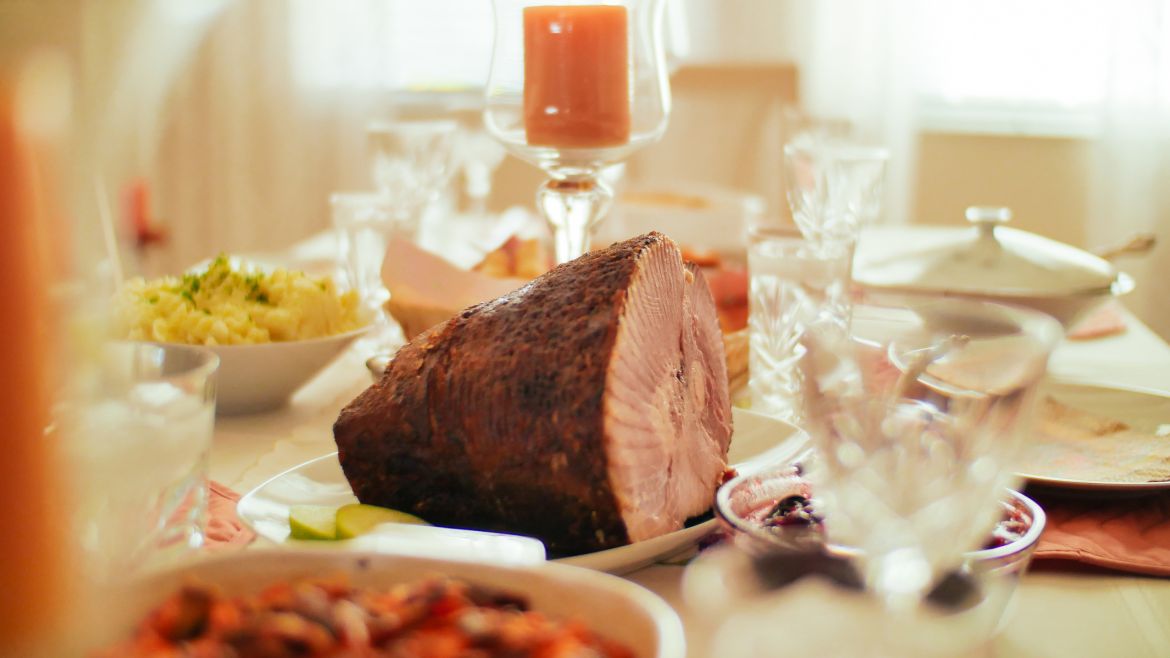‘Did Jesus say that all food is clean, by saying it’s what comes out, not what goes in?’
(question from a student, L.).
Answer given by Pastor Christian Salcianu,
23 January 2024, Watford
Let me get into the Bible text and point out the key elements there, looking carefully at the context. Please read the entire story and dialogue in Mark 7, verses 1 to 23.
Jesus and His disciples are being monitored and then discussed by a board of ‘saints’. Simply put, the challenge was:
‘Why don’t your disciples live according to the tradition of the elders instead of eating their food with defiled hands?’ (verse 5).
I hope you can see that the key issue here is not the law of God, it is not a sinful thing condemned by it, but instead it is non-alignment to a certain tradition (‘tradition of the elders’). If you want to know more about it, read verses 3 and 4.
Clean and unclean
Imagine this situation: a Jew goes to the market, touches a lot of people, handles many items, and then comes home. Accordingly (from that perspective) he is ceremonially ‘defiled’ or ‘unclean’ since he could have been in touch, even intentionally, with something/someone unclean. What to do then, when coming home? Get cleansed. How? By washing. This washing was not about quantities of water (as in a shower), and it was not about soap (as in a disinfection procedure). It was, in fact, a ceremonial washing. Read again verse 2 and you will see that for the accusers, being unwashed = defiled.

Probably the disciples learned from Jesus that such a tradition is not valid (you can see Him not observing/obeying such tradition in Luke 11:37-41). Fact is that now they are scrutinised and accused.
Jesus’ first answer
Jesus takes the side of the disciples, and He accuses the Pharisees and the teachers of the law of hypocrisy, as they preferred to bury the law of God under many traditions (‘Corban’ was one of them, see verses 11 and 12, I can feature that one in a separate post). The key response from Jesus is that by following traditions instead of God’s word ‘these people honour me with their lips, but their hearts are far from me. They worship me in vain; their teachings are merely human rules’ (verses 6 and 7). As mentioned before, you can see Jesus’ answer also in that other circumstance when He was accused (Luke 11:37-41).
Jesus’ first answer is clear, ‘their teachings are merely human rules’. Let’s follow Him as He continues.
Jesus’ second answer
And then Jesus spoke again, and this time He turned to the crowds (there is a certain dynamic and it is important). And He highlighted something you already noted: ‘nothing outside a person can defile them by going into them. Rather, it is what comes out of a person that defiles them’ (verse 15).
This saying is very strong, as it clearly points out, ‘nothing can defile’. Really? (That was in His disciples’ minds also . . .) And He talks about what goes inside, and what comes outside. Typical of Jesus, isn’t it?
What is He talking about?
Jesus’ third answer
So, a third time Jesus talks, and this time to the disciples only. He makes it very plain, by illustrating it. Jesus doesn’t seem concerned about the ‘defilement’ of one’s hands, mouth, stomach, intestines. But the one of the heart.

In other words, food comes in (from the market) and you put it on the plate, it is digested by the human body, and then it gets out (to the toilet) — it has no moral bearing. One is not better than another just because one eats vegan foods only, while another one eats meat. (Some of the Nazi leaders were vegetarians, by the way.) Of course, we can talk about healthy foods, as not everything should be eaten, we can measure quantities, as being balanced is very important, we can talk about other things related to the quality of a meal (See our course Your Health).
But here one thing is clear: for Jesus there is no difference if one eats with clean (washed) hands and another eats with his hands unclean (unwashed), if all is monitored from a ‘human tradition’.
Ceremonially clean
So, here we have that last part of verse 19 where the Gospel writer tells us ‘in saying this, Jesus declared all foods clean.’ This should not be construed as, ‘from now on you can eat anything and everything, poisoned or toxic, as the Gospel says that Jesus declared all foods clean’. Please! And I am stressing this as many people see this as a green light to do whatever one want. . .
The context shows that for Jesus all foods are clean, it does not matter if one has washed hands or not before. (By the way, it is very healthy to use water and soap before eating, thinking of the produce, the plates, utensils, hands.)
Don’t forget, all this discussion was about a ceremonial uncleanness — not from a hygienic perspective, nor a health perspective, nor a moral one.
As far as God’s law is concerned, there was nothing in it saying that washing cleans a meal (in fact, one can clean/wash a pig, a shrimp or a bat ten thousand times and it is still not good to be eaten according to God’s word, see Leviticus 11). Yes, the Pharisees and the teachers of the law wanted to push it all the way through, assigning moral value to the ritual of washing all the foods, accusing such a sin in the behaviour of the disciples . . . but Jesus strongly refuted that.
OK, what defiles a person then?
‘What comes out of a person is what defiles’, said Jesus (verse 20). Listing: ‘sexual immorality, theft, murder, adultery, greed, malice, deceit, lewdness, envy, slander, arrogance and folly’.
They are coming ‘from within’, they are coming ‘out of a person’s heart’, they are driven by ‘evil thoughts’ (mind the mind here, not the intestines).

Conclusion
In closing, this dialogue and the three-tier explanation Jesus gave is a very good example to show us what should be our focus. Not a human tradition, no matter who’s the authority behind it, but rather following God’s word.
A person is not perceived by God as unclean if he/she does something against a human tradition. God will not judge them by such standards. Instead, God’s law has been made known; please read the Ten Commandments once more (Exodus 20). So if one goes against that rule of life he simply turns his back to his Creator, defiles his person, showing that inside (in the heart, in the mind) such a person is not approved by God.
In the end, what comes outside of a man shows what is inside. If sins, then evil thoughts are in. If good deeds, then God’s Spirit is leading (see the difference between the two in Galatians 5:16-25).
‘Whether you eat or drink or whatever you do, do it all for the glory of God.’
1 Corinthians 10:31




